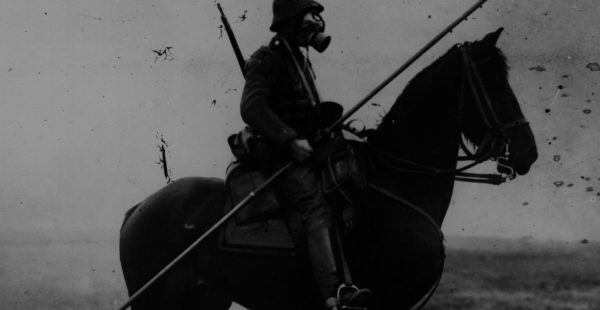
Remembering the Great War
November 11, 2018 marked the 100th anniversary of the end of World War One. It was called the Great War – the World War – the War to End All Wars. Certainly it did not succeed in ending all wars, but it was the end of an age, and the beginning of an age. It laid the foundation for our modern world.
The Start of the War
World War One was the result of a tangle of alliances. The Triple Alliance, formed in 1882, tied together the Central Powers (Austria-Hungary, Germany, and temporarily Italy). Germany had a bitter relationship with France. During the Franco-Prussian War (1870-1871), Germany took over French territory, including the Alsace-Lorraine.
France was not ready for another war with Germany, but she longed to restore her lost territory. Germany was confident of victory over France but was concerned about Russian involvement and a two-front war – a fear that became more realistic after the Franco-Russian Alliance of 1892.
Ultimately, Britain joined Russia and France in the Triple Entente. Germany and Britain were already engaged in a massive arms race, and the German navy was a challenge to Britain. The idea of Germany subjugating France was absolutely unacceptable to the British.
In 1908, Austria-Hungary annexed Bosnia and Herzegovina, which angered the Kingdom of Serbia. A group of radicals assassinated the Austrian Archduke Franz Ferdinand on June 28, 1914, as he visited Sarajevo, the Bosnian capital. Austria-Hungary responded with a list of absurd demands, and when Serbia refused to accept them, Austria-Hungary declared war on July 28, 1914.
Russia mobilized to support Serbia. Germany declared war on Russia, and then declared war on France, invading through the neutral nation of Belgium. Britain moved to support Belgium by declaring war on Germany.
The War
The Germans hoped to rush into Paris, defeat the French, and then transport German troops by rail to the east before Russia had time to mobilize. Indeed, through August 1914, the Germans made remarkable progress into France. Finally, in early September, the Germans were pushed back 30 miles during the ‘miracle of the Marne,’ and the war bogged down into a trench war. The battle lines remained relatively stagnant throughout the rest of the war. Massive battles on the western front – such as the Somme, Verdun, and Paschendalle – resulted in hundreds of thousands of casualties and very little progress. This was partly due to the modern technology that made offensive warfare so dangerous – especially the bloody assaults over no-man’s-land.
On the eastern front, Russia invaded Germany faster than expected. Yet the Russian army was poorly prepared for war. Though Germany war forced to pull troops from the western front, they quickly gained the advantage over Russia. The conditions ultimately led to the Bolshevik Revolution, and on March 3, 1918, the Bolsheviks made peace with Germany.
The Great War involved the entire British Empire. In Africa, allied forces invaded the German territories of Southwest Africa (Namibia), East Africa (Tanzania), Togoland, and Kamerun. In Asia, the Ottoman Empire sided with Germany. At the deadly Gallipoli campaign, the allies devoted hundreds of thousands of men to a failed attempt to start a new front against the Ottomans. They were more successful in their support of the Arabs, who rebelled against the Ottomans with the guidance of Lawrence of Arabia. The Ottoman Empire was responsible for the horrific Armenian Genocide, but the Empire collapsed by the end of the war.
Germany’s use of U-boats to cripple British shipping eventually resulted in unrestricted submarine warfare. When American ships were attacked, America declared war on Germany on April 6, 1917. It took some time for America to mobilize, but hundreds of thousands of American soldiers soon joined the western front.
The End of the War
American troops soon poured into France at a rate of 10,000 per day. Allied offensives slowly pushed the Germans farther back, and on November 9, 1918, the German rulers were removed from power. An armistice went into effect on the eleventh hour of the eleventh day of the eleventh month (November 11 at 11 AM). This marked the conclusion of the war, though it formally ended on June 28, 1919.
At the Treaty of Versailles, both Austria-Hungary and the Ottoman Empire were partitioned into multiple nations, while Britain and France took the colonial holdings of Germany. The harsh terms of the treaty resulted in German resentment and laid the groundwork for Adolph Hitler to channel the anger into a Third Reich.
With the Great War came a sense of disillusionment: a realization of the great destructive power of war and the failure of modern civilization. The War radically changed the face of Europe and the globe. It set the stage for the twentieth century – “The Century of Ideologies” – Nazism, Communism, and Zionism all grew out of the Great War. The world entered 1914 naïve and simplistic; it ended 1918 disenchanted, in a new stage of world history.



